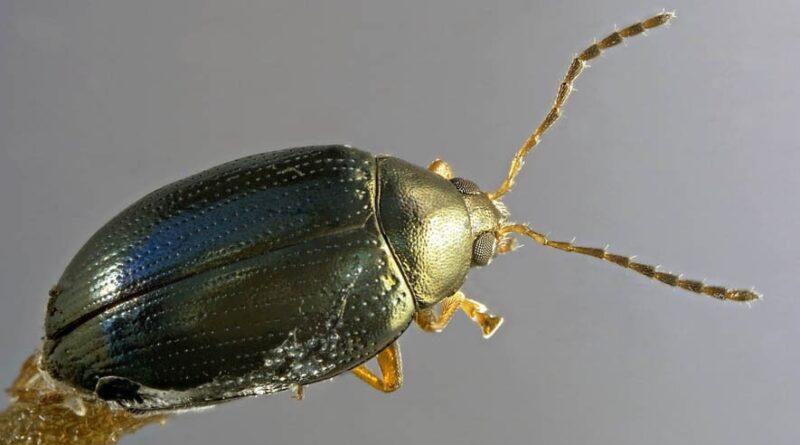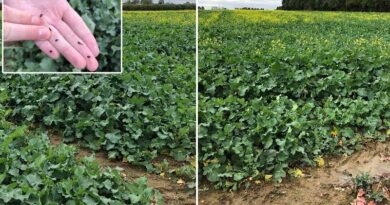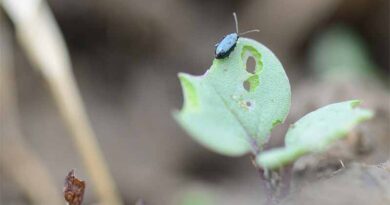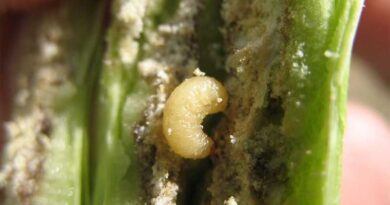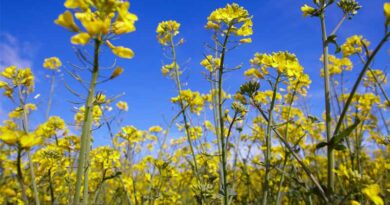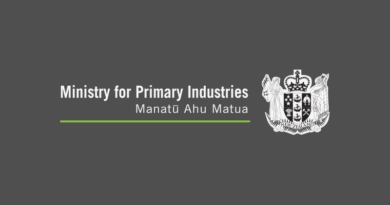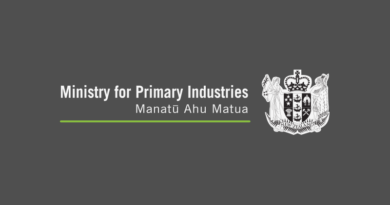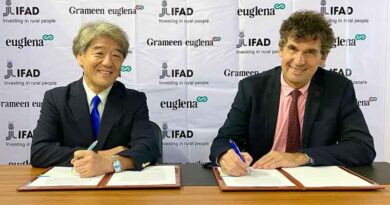CABI works in partnership to find effective biopesticide to fight devastating Cabbage Stem Flea Beetle
03 November 2020, UK: CABI has teamed up with CHAP (Crop Health and Protection) as well as Russell Bio Solutions Ltd and H&T Bioseed to try and find a more environmentally sustainable alternative to the now banned neonic insecticides to fight the devastating Cabbage Stem Flea Beetle Psylliodes chrysocephalus (CSFB).
Also Read: EIMA Mention Award: Digital Plant Protection
Funded by a grant from Innovate UK, the group of researchers are hoping to develop different formulations of a fungal biopesticide – identified in work already carried out by CABI and CHAP – to target CSFB in oilseed rape, especially in light of increasing resistance to pyrethroids.
It is hoped that the project will significantly help farmers in the UK increase their yields through enhanced CSFB control. The project will also work towards achieving net zero emissions by 2040 through the development of targeted biopesticide application.
Oilseed rape (OSR) has for many years been the third largest arable crop in the UK, after wheat and barley. However, in 2019 the amount of OSR grown in the UK fell to 1,752,000 tonnes, down 12.9% from the 2,012,000 tonnes grown in 2018.
This was the lowest yield in 5 years, due in part to the increasing prevalence of CSFB. The estimated cost of CSFB to growers in 2019 was £79M. With limited management tools left to control CSFB there is a market opportunity to develop a biopesticide.
Also Read: ADAMA acquiring majority stake in Huifeng’s crop protection synthesis and formulation facilities
A focus on engagement with farmers will run alongside this development work and will involve two knowledge transfer workshops. The first will focus on the aim and objectives of the project, while the second will cover dissemination of results and technology adoption.
Dr Belinda Luke, Principal Scientist, Biopesticides Team, at CABI said: “The CABI Biopesticide Team are delighted to be able to provide growers of oilseed rape an alternative to neonics in their battle against CSFB.
“CABI have developed a few biopesticides over the past 25 years and it is great to work with H&T Bioseeds and Russell Bio Solutions to potentially get products on the market. With CHAP’s extensive UK network, it makes the perfect partnership for growers and scientists to come together to overcome the CSFB problem.”
Dr Jenna Ross, International Business Development Manager at CHAP said, “CSFB damage is a massive challenge for OSR growers. This project is extremely timely and brings together leading scientists, innovators and businesses to develop a much-needed solution for the sector.
“And our focus on end-user farmer engagement is key for market adoption. We at CHAP are thrilled to be leading this project that aims to meet the OSR market demand and increase crop productivity while achieving net zero emissions and wider environmental and societal benefits.”
Dr Nayem Hassan, Managing Director at Russel IPM, said: “The Russell IPM team is excited to develop a sustainable solution for CSFB in this challenging time when oilseed rape growers are unable to use many conventional chemicals.
“As a manufacturer of biological pesticides in the UK, we are really excited to see microbial technology becoming available to farmers to help them sustainably combat CSFB and avoid significant yield losses. We strongly believe that in collaboration with CABI, CHAP and H&T Bioseeds, we will be able to place a new alternative tool in growers’ hands to tackle CSFB effectively.”
Mr Paul Oliver, Managing Director at H&T Bioseed, said: “Biological solutions are an important component of future crop production. We are proud to be part of a project that has the potential to improve crop growth for farmers as well as provide better outcomes for our environment.”

